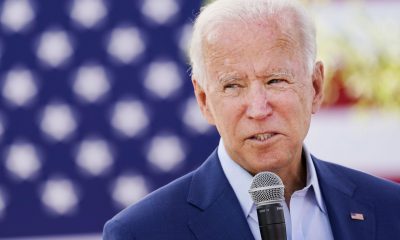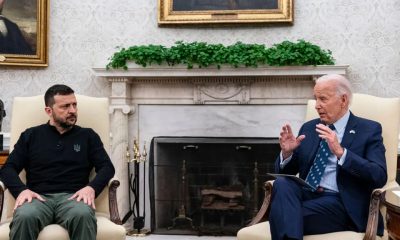International
Watching Ukraine, Bosnians relive the trauma of their war

“Not so long ago, we were them,” said Amra Muftic who survived the 1992-95 siege, watching news reports showing civilians taking refuge from Russian rocket attacks, shelling and gunfire in basements and metro stations.
“If our experience is anything to go by — and I have a gut feeling that it is — things are about to get much worse,” for them, she added.
Bosnian Serb forces laid siege to Sarajevo in the early 1990s, during the bloody break-up of Yugoslavia. Some 350,000 people were trapped, for 46 months, in their multiethnic city, subjected to daily shelling and sniper attacks and cut off from regular access to electricity, food, water, medicine, and the outside world.
More than 11,000 people were killed during the siege, including over 1,000 children. Countless others were wounded.
“We know how they feel. We survived the longest siege in modern history” said Elma Vukotic, an anesthesiologist, as she and her fellow healthcare workers stood earlier this week outside their Sarajevo hospital, clad in their medical robes and holding balloons in the blue and yellow colors of the Ukrainian flat — and, coincidentally, also the Bosnian one. Vukotic said their spontaneous show of solidarity was the least they could do for their Ukrainian colleagues.
“All wars are painful, all attacks against civilians abhorrent, but what is happening to Ukrainians right now is especially traumatic for us because they are so near and in a situation very similar to ours” three decades ago, Vukotic said.
READ ALSO:
- Sanusi: Nigerians Manipulate Religion To Cover The Truth
- Saka On Target As Arsenal Beat Watford To Leapfrog Manchester United
- Russian strike destroys Ukrainian airport
“Television images of pregnant women waiting to give birth in the basement of the Kyiv hospital, hastily converted into an emergency bomb shelter, gave me a strong sense of deja vu; I know exactly how they feel, how terrified they must be,” she added. “Also, I think we all can empathize with how unwilling ordinary Ukrainians were to accept that the war was coming until Russian rockets and bombs started raining down on their homes, schools and hospitals.”
The Bosnian war started when Bosnian Serbs, with the help of the Yugoslav army, tried to create ethnically pure territories with the aim of joining neighboring Serbia. More than 100,000 people were killed and 2 million — more than a half of the country’s population — were left homeless during the conflict.
The Serb leadership argued throughout the war that multiethnic Bosnia was not a country at all and that, along with its Catholic Croats and its Bosniaks, who are mostly Muslim and account for about half of the population, it should be split between neighboring Serbia and Croatia. Bosniaks, they insisted, were just treacherous Serb converts who centuries ago abandoned their original (Orthodox Christian) faith.
Many in Sarajevo heard the echoes of those old insults in Vladimir Putin’s recent statements, offered to justify Russia’s invasion of Ukraine.
A United Nations arms embargo maintained in Bosnia throughout the 1990s conflict gave Bosnian Serb militias, armed and backed by the Serbia-controlled Yugoslav Army, an edge in the fight. They conquered 60% of Bosnia’s territory in less than two months, committing horrendous atrocities against their Bosniak and Croat compatriots.
In 1995, the U.S.-brokered Dayton Peace agreement put an end to the bloodshed in Bosnia by dividing the country into two semi-autonomous parts — one run by the Serbs and the other shared by Bosniaks and Croats. The two are linked by weak multiethnic institutions.
But living together in the aftermath of a brutal, fratricidal conflict has proven to be difficult.
The postwar power-sharing system perpetuates the polarized and venomous political climate in Bosnia, while its entrenched nationalist leaders continuously stoke ethnic animosities for political gain.
With Moscow’s backing, the strongly pro-Russian Bosnian Serbs, in particular, have been advocating for years for the independence of their region. Meanwhile, sectarian networks of patronage and pervasive corruption, which gradually became integral to the system, ensure that Bosnia remains one of the poorest countries in Europe, increasingly hemorrhaging its best and brightest.
“Right now, Ukrainians are subjected to torture, they are pleading for help and hoping for who knows what,” said Zoka Catic, a film-maker and journalist from Sarajevo who has spent years documenting the devastating impact of war on the mental health of Bosnians of all ethnic stripes.
No matter how the conflict in Ukraine ends, he argued, there is no such thing as a happy ending to a war.
“It is just a matter of time…before (Ukrainians) turn into us: sad, unhappy people who experienced the worst feeling in the world — helplessness.”
International
Syria not threat to world, rebel leader al-Sharaa tells BBC
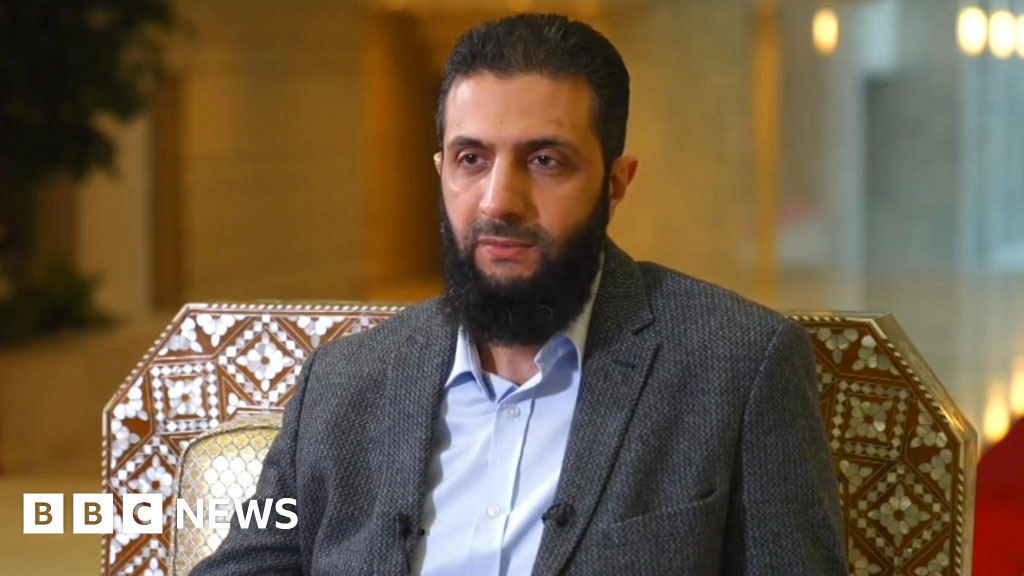
Syria not threat to world, rebel leader al-Sharaa tells BBC
The de facto leader of Syria, Ahmed al-Sharaa, has said the country is exhausted by war and is not a threat to its neighbours or to the West.
In an interview with the BBC in Damascus, he called for sanctions on Syria to be lifted.
“Now, after all that has happened, sanctions must be lifted because they were targeted at the old regime. The victim and the oppressor should not be treated in the same way,” he said.
Sharaa led the lightning offensive that toppled Bashar al-Assad’s regime less than two weeks ago. He is the leader of the Hayat Tahrir al-Sham (HTS), the dominant group in the rebel alliance, and was previously known by his nom de guerre of Abu Mohammed al-Jolani.
He said HTS should be de-listed as a terrorist organisation. It is designated as one by the UN, US, EU and UK, among many others, as it started as a splinter group of al-Qaeda, which it broke away from in 2016.
Sharaa said HTS was not a terrorist group.
They did not target civilians or civilian areas, he said. In fact, they considered themselves to be victim of the crimes of the Assad regime.
He denied that he wanted to turn Syria into a version of Afghanistan.
READ ALSO:
- Tinubu’s 2025 budget will increase poverty, worsen economy – PDP
- Real Madrid outclass Pachuca to win FIFA Intercontinental Cup
- Israel hits ports, energy sites in Yemen after missile intercepted
Sharaa said the countries were very different, with different traditions. Afghanistan was a tribal society. In Syria, he said, there was a different mindset.
He said he believed in education for women.
“We’ve had universities in Idlib for more than eight years,” Sharaa said, referring to Syria’s north-western province that has been held by rebels since 2011.
“I think the percentage of women in universities is more than 60%.”
And when asked whether the consumption of alcohol would be allowed, Sharaa said: “There are many things I just don’t have the right to talk about because they are legal issues.”
He added that there would be a “Syrian committee of legal experts to write a constitution. They will decide. And any ruler or president will have to follow the law”.
Sharaa was relaxed throughout the interview, wearing civilian clothes, and tried to offer reassurance to all those who believe his group has not broken with its extremist past.
Many Syrians do not believe him.
The actions of Syria’s new rulers in the next few months will indicate the kind of country they want Syria to be – and the way they want to rule it.
Syria not threat to world, rebel leader al-Sharaa tells BBC
BBC
International
Israel hits ports, energy sites in Yemen after missile intercepted
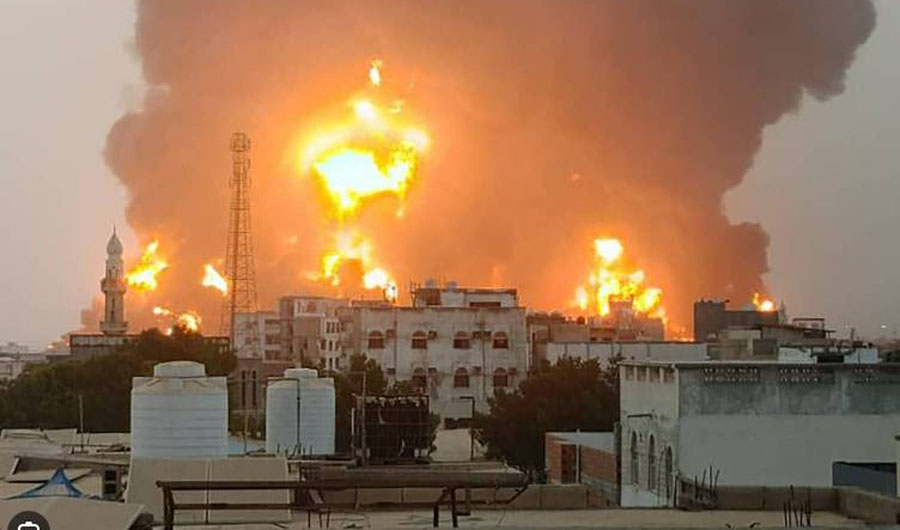
Israel hits ports, energy sites in Yemen after missile intercepted
JERUSALEM: Israel said Thursday it struck ports and energy infrastructure it alleges are used by Houthi militants, after intercepting a missile fired by the group.
Israel’s military said it “conducted precise strikes on Houthi military targets in Yemen — including ports and energy infrastructure in Sanaa, which the Houthis have been using in ways that effectively contributed to their military actions.”
The announcement came shortly after Israel said it had intercepted a missile fired from Yemen.
Al-Masira, a media channel belonging to the Houthis, said a series of “aggressive raids” were launched in the Yemeni capital of Sanaa and the port city of Hodeidah.
It reported raids that “targeted two central power plants” in Yemen’s capital Sanaa, while in Hodeidah it said “the enemy launched four aggressive raids targeting the port… and two raids targeting” an oil facility.
The strikes were the second time this week that Israel’s military has intercepted a missile from Yemen.
On Monday, the Houthis claimed a missile launch they said was aimed at “a military target of the Israeli enemy in the occupied area of Yaffa” — a reference to Israel’s Tel Aviv area.
READ ALSO:
- Gaza mediators intensify ceasefire efforts, Israeli strikes kill 20 people
- PDP expels South-East national vice chairperson over anti-party activities
- Your information on $1bn investment misleading, Dangote Refinery replies NNPCL
Also Monday, an Israeli navy missile boat intercepted a drone in the Mediterranean after it was launched from Yemen, the military said.
The Houthi militants have said they are acting in solidarity with Palestinians and pledged Monday to continue operations “until the aggression on Gaza stops and the siege is lifted.”
On December 9, a drone claimed by Houthis exploded on the top floor of a residential building in the central Israel city of Yavne, causing no casualties.
In July, a Houthi drone attack in Tel Aviv killed an Israeli civilian, prompting retaliatory strikes on the Yemeni port of Hodeidah.
The Houthis have also regularly targeted shipping in the Red Sea and the Gulf of Aden, leading to retaliatory strikes on Houthi targets by United States and sometimes British forces.
Israeli military spokesman Daniel Hagari said the group had become a “global threat,” pointing to Iran’s support for the militants.
“We will continue to act against anyone, anyone in the Middle East, that threatens the state of Israel,” he said.
Israel hits ports, energy sites in Yemen after missile intercepted
International
Gaza mediators intensify ceasefire efforts, Israeli strikes kill 20 people
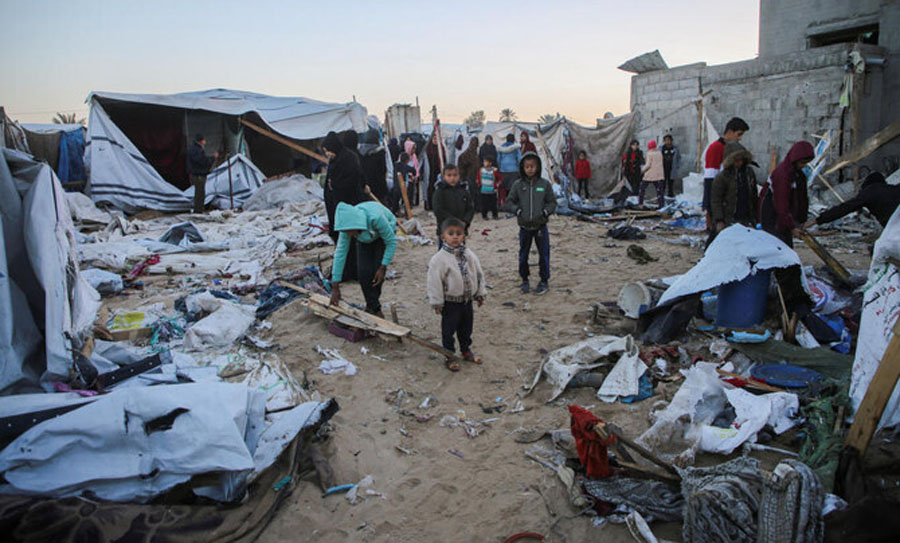
Gaza mediators intensify ceasefire efforts, Israeli strikes kill 20 people
CAIRO: The United States, joined by Arab mediators, sought on Wednesday to conclude an agreement between Israel and Hamas to halt the 14-month-old war in the Gaza Strip where medics said Israeli strikes killed at least 20 Palestinians overnight.
A Palestinian official close to the negotiations said on Wednesday that mediators had narrowed gaps on most of the agreement’s clauses. He said Israel had introduced conditions which Hamas rejected but would not elaborate.
On Tuesday, sources close to the talks in Cairo, the Egyptian capital, said an agreement could be signed in coming days on a ceasefire and a release of hostages held in Gaza in return for Palestinian prisoners held by Israel.
Medics said an Israeli airstrike killed at least 10 people in a house in the northern town of Beit Lahiya while six were killed in separate airstrikes in Gaza City, Nuseirat camp in central areas, and Rafah near the border with Egypt.
In Beit Hanoun in the northern Gaza Strip, medics said four people were killed in an airstrike on a house. There was no immediate comment from the Israeli military spokesman.
Israeli forces have operated in the towns of Beit Hanoun and Beit Lahiya as well as the nearby Jabalia camp since October, in a campaign the military said aimed to prevent Hamas militants from regrouping.
Palestinians accuse Israel of carrying out acts of “ethnic cleansing” to depopulate the northern edge of the enclave to create a buffer zone. Israel denies it.
READ ALSO:
- PDP expels South-East national vice chairperson over anti-party activities
- Your information on $1bn investment misleading, Dangote Refinery replies NNPCL
- Many die at Ibadan children’s Christmas party stampede, organisers arrested
Hamas does not disclose its casualties, and the Palestinian health ministry does not distinguish in its daily death toll between combatants and non-combatants.
On Wednesday, the Israeli military said it struck a number of Hamas militants planning an imminent attack against Israeli forces operating in Jabalia.
Later on Wednesday, Muhammad Saleh, director of Al-Awda Hospital in Jabalia, said Israeli shelling in the vicinity damaged the facility, wounding seven medics and one patient inside the hospital.
The Israeli military had no immediate comment.
In the Central Gaza camp of Bureij, Palestinian families began leaving some districts after the army posted new evacuation orders on X and in written and audio messages to mobile phones of some of the population there, citing new firing of rockets by Palestinian militants from the area.
CEASEFIRE GAINS MOMENTUM
The US administration, joined by mediators from Egypt and Qatar, has made intensive efforts in recent days to advance the talks before President Joe Biden leaves office next month.
In Jerusalem, Israeli President Isaac Herzog met Adam Boehler, US President-elect Donald Trump’s designated envoy for hostage affairs. Trump has threatened that “all hell is going to break out” if Hamas does not release its hostages by Jan. 20, the day Trump returns to the White House.
CIA Director William Burns was due in Doha on Wednesday for talks with Qatari Prime Minister Sheikh Mohammed bin Abdulrahman Al-Thani on bridging remaining gaps between Israel and Hamas, other knowledgeable sources said. The CIA declined to comment.
Israeli negotiators were in Doha on Monday looking to bridge gaps between Israel and Hamas on a deal Biden outlined in May.
There have been repeated rounds of talks over the past year, all of which have failed, with Israel insisting on retaining a military presence in Gaza and Hamas refusing to release hostages until the troops pulled out.
The war in Gaza, triggered by a Hamas-led attack on communities in southern Israel that killed some 1,200 people and saw more than 250 abducted as hostages, has sent shockwaves across the Middle East and left Israel isolated internationally.
Israel’s campaign has killed more than 45,000 Palestinians, displaced most of the 2.3 million population and reduced much of the coastal enclave to ruins.
Gaza mediators intensify ceasefire efforts, Israeli strikes kill 20 people
ARAB NEWS
-

 Railway18 hours ago
Railway18 hours agoLagos Rail Mass Transit part of FG free train ride – NRC
-

 metro2 days ago
metro2 days agoCourt stops customs from seizing imported rice in open market
-

 metro3 days ago
metro3 days agoFG transfers electricity market regulatory oversight in Lagos to LASERC
-

 metro2 days ago
metro2 days agoIbadan stampede: Tinubu orders probe as death toll hits 40
-

 metro2 days ago
metro2 days agoAfe Babalola: Court grants Dele Farotimi bail, barred from media interviews
-

 metro19 hours ago
metro19 hours agoNIMC warns against extortion, reaffirms free NIN enrollment
-

 metro1 day ago
metro1 day agoIbadan stampede: Ooni reacts after arrest of ex-wife
-

 News2 days ago
News2 days agoAdebayo Ogunlesi, 2 other Nigerians make Forbes 50 wealthiest Black Americans list 2024





